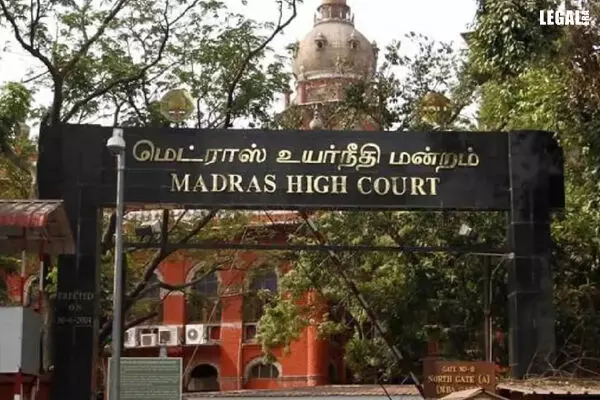- Home
- News
- Articles+
- Aerospace
- AI
- Agriculture
- Alternate Dispute Resolution
- Arbitration & Mediation
- Banking and Finance
- Bankruptcy
- Book Review
- Bribery & Corruption
- Commercial Litigation
- Competition Law
- Conference Reports
- Consumer Products
- Contract
- Corporate Governance
- Corporate Law
- Covid-19
- Cryptocurrency
- Cybersecurity
- Data Protection
- Defence
- Digital Economy
- E-commerce
- Employment Law
- Energy and Natural Resources
- Entertainment and Sports Law
- Environmental Law
- ESG
- FDI
- Food and Beverage
- Gaming
- Health Care
- IBC Diaries
- In Focus
- Inclusion & Diversity
- Insurance Law
- Intellectual Property
- International Law
- IP & Tech Era
- Know the Law
- Labour Laws
- Law & Policy and Regulation
- Litigation
- Litigation Funding
- Manufacturing
- Mergers & Acquisitions
- NFTs
- Privacy
- Private Equity
- Project Finance
- Real Estate
- Risk and Compliance
- Student Corner
- Take On Board
- Tax
- Technology Media and Telecom
- Tributes
- Viewpoint
- Zoom In
- Law Firms
- In-House
- Rankings
- E-Magazine
- Legal Era TV
- Events
- News
- Articles
- Aerospace
- AI
- Agriculture
- Alternate Dispute Resolution
- Arbitration & Mediation
- Banking and Finance
- Bankruptcy
- Book Review
- Bribery & Corruption
- Commercial Litigation
- Competition Law
- Conference Reports
- Consumer Products
- Contract
- Corporate Governance
- Corporate Law
- Covid-19
- Cryptocurrency
- Cybersecurity
- Data Protection
- Defence
- Digital Economy
- E-commerce
- Employment Law
- Energy and Natural Resources
- Entertainment and Sports Law
- Environmental Law
- ESG
- FDI
- Food and Beverage
- Gaming
- Health Care
- IBC Diaries
- In Focus
- Inclusion & Diversity
- Insurance Law
- Intellectual Property
- International Law
- IP & Tech Era
- Know the Law
- Labour Laws
- Law & Policy and Regulation
- Litigation
- Litigation Funding
- Manufacturing
- Mergers & Acquisitions
- NFTs
- Privacy
- Private Equity
- Project Finance
- Real Estate
- Risk and Compliance
- Student Corner
- Take On Board
- Tax
- Technology Media and Telecom
- Tributes
- Viewpoint
- Zoom In
- Law Firms
- In-House
- Rankings
- E-Magazine
- Legal Era TV
- Events
Madras High Court Restores Testbook’s Suit Against Google Over Billing Policy

Madras High Court Restores Testbook’s Suit Against Google Over Billing Policy
The Madras High Court's Division Bench has reinstated a lawsuit filed by Testbook Edu Solution Pvt Ltd, an ed-tech company, challenging Google’s billing policy. The Bench, comprising Chief Justice K Shriram and Justice Senthilkumar Ramamoorthy, overturned a single-judge ruling from April 30, 2024, which had dismissed Testbook's suit as non-maintainable.
In its January 20 ruling, the Bench noted factual errors in the earlier order and sent the case back to the single judge for reconsideration. It clarified that it expressed no opinion on the merits of the case and allowed Testbook to file a fresh plea for interim relief.
Testbook argued that its case was distinct from earlier petitions filed by other startups against Google’s user choice billing system, dismissed by Justice S Sounthar in August 2023. Those cases were deemed within the jurisdiction of the Competition Commission of India (CCI). Testbook contended that its claims, including breaches of contract law and violations of the Payment and Settlement Systems Act, 2007 (PSS Act), fell within the purview of civil courts.
Testbook specifically challenged clauses in Google’s Developer Distributor Agreement (DDA) and Developer Terms of Service related to termination, service fees, and the alternate billing system. It also raised concerns about privacy policy breaches and anti-competitive practices.
Previously, Justice P Velmurugan dismissed Testbook's suit, citing the CCI's authority to address such disputes. This decision has now been set aside.
The High Court had earlier granted interim relief to Testbook, reducing Google’s service fee to 4% for using its in-app payment system and restraining Google from delisting Testbook from the Play Store.
Google’s billing policy changes, introduced in 2023 to comply with a 2022 CCI ruling, allow app developers to offer alternative billing options but still require reduced service fees ranging from 11% to 26%, depending on the app type and revenue. This system has faced criticism from Indian startups, including Testbook, for being restrictive and anti-competitive.
The Division Bench's ruling reopens the case, providing Testbook another opportunity to argue its claims against Google’s billing practices.
- #Madras High Court
- #Testbook
- #Ed Tech
- #Google Billing Policy
- #User Choice Billing
- #Competition Law
- #Civil Law
- #App Developers
- #Tech Policy
- #Digital Economy
- #Startup India
- #In App Payments
- #Service Fee
- #Consumer Rights
- #Privacy Concerns
- #Tech Litigation
- #India Tech
- #Court Ruling
- #Legal Updates
- #Competition Commission
- #Justice K Shriram
- #Justice Senthilkumar Ramamoorthy


